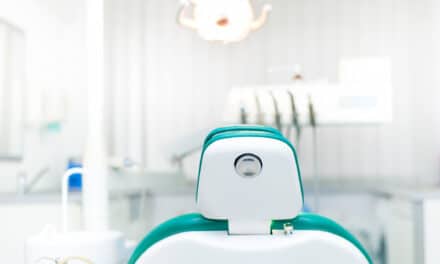The latest patient survey from PatientPop finds that 74% of patients find online reviews very or extremely important when making their decision on a healthcare provider.
The majority of adults will not consider a healthcare provider with online reviews showing an average star rating lower than 4.0 out of 5. That’s according to the third annual patient perspective survey from PatientPop.
The survey looked at patient preferences, choices, and behaviors throughout the COVID-19 post-pandemic rebound. The company polled 881 people nationwide in May 2021. Respondents were 55.9% female and 44.1% male, with a census-balanced distribution across four age segments, ages 18 and older.
According to the report, between April 2020 and April 2021, 92.5% of people had at least one healthcare visit during the pandemic. Approximately 60.3% of those patient visits were with a dental care provider; and nearly one in three patients (30.6%) saw a dental and primary care provider during that period.
The findings revealed that most patients look online to select healthcare providers. According to the report, three of four people in the United States have searched online to find out about a dental professional, and 61% of people do so sometimes or often. But when making a final decision on which provider is a good fit, patients rarely refer to just one online resource, such as the practice website or social media platforms. In fact, two-thirds of people who access their insurance company’s directory said they also read reviews of the providers. When choosing a healthcare provider, 74% of patients find online reviews very or extremely important; and 69% of people will not consider a healthcare provider with an average star rating lower than 4.0 out of 5.
When it comes to those online reviews, the survey found that patients mentioned the healthcare provider’s demeanor far less as the reason for a negative review compared to 2020 survey results . Although it still ranks second, mentions have dropped by 36% since last year. However, issues with practice staff are up by 29% as the focus of negative patient feedback.
According to Patient Pop, the increase in patients reporting issues with practice staff is likely tied to the increased level of stress and burnout office staff likely faced throughout 2020 as the pandemic halted care temporarily, put businesses at risk, and demanded that staff manage new tasks and protocols related to COVID-19.
As patients return to their post-pandemic healthcare routines, the survey found that most respondents want reassurance or more detailed information. They also want practitioners and clinical staff who can address concerns and answer queries using a variety of communication modes, including in person, via text or email, over the phone, and via a telehealth visit when needed. More than half of patients prefer a digital connection when scheduling an appointment, filling out forms, asking a question, paying a bill, and accessing health records. And two-thirds of patients (66%) prefer text messages when receiving medical appointment reminders. Additionally, 59% would like text message reminders to book their next appointment.
Overall, practices using technology to attract and connect with patients and respond to feedback are well-positioned to stay connected, best serve their patients, run an efficient business, and thrive in the long run, according to Patient Pop.










